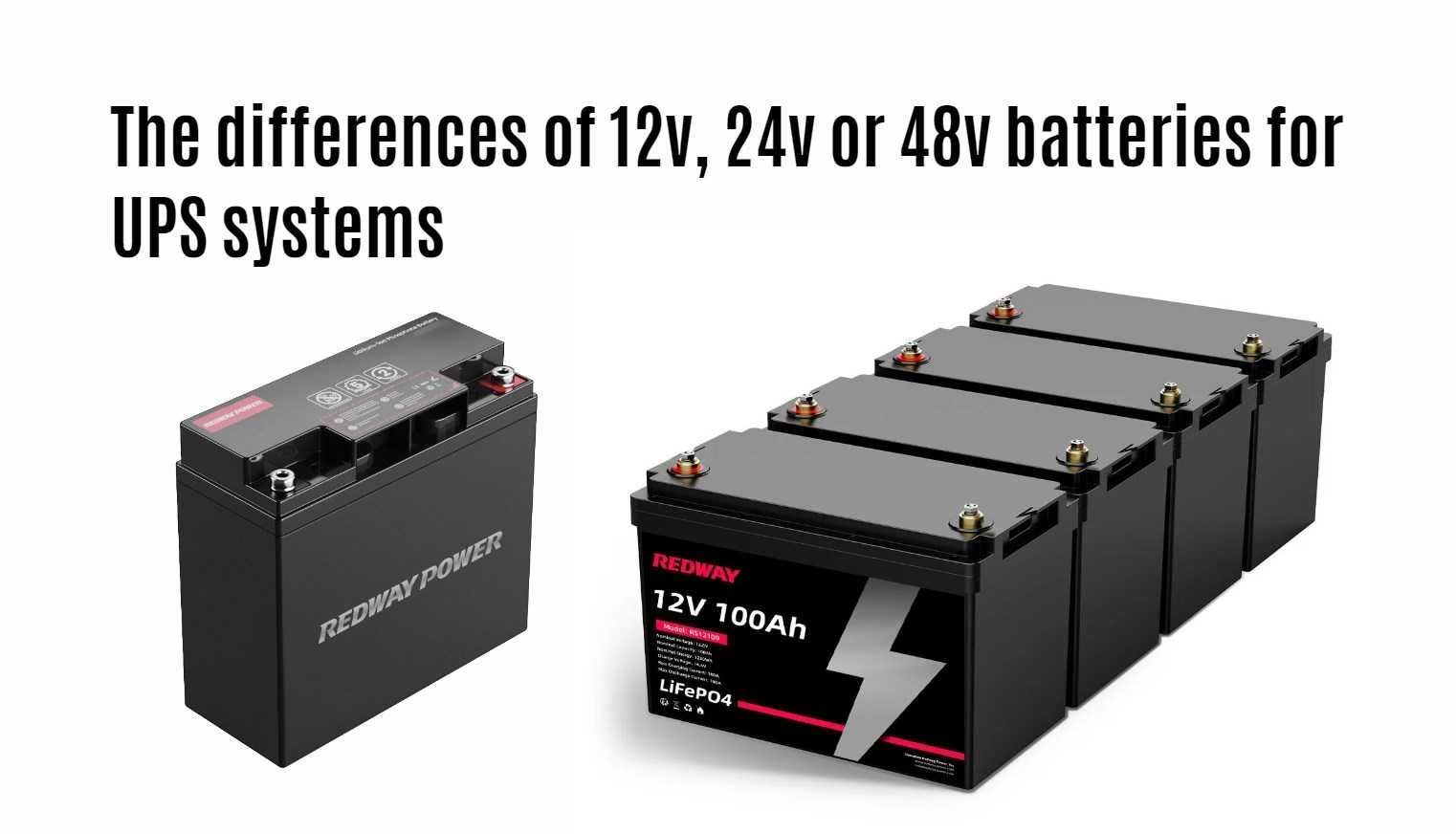Uninterruptible Power Supplies (UPS) are critical in ensuring that devices remain operational during power outages. They provide backup power to essential systems, safeguarding data integrity and maintaining operational continuity. A key component of any UPS system is the battery, which stores the power necessary to bridge the gap during an outage. The choice of battery voltage—12V, 24V, or 48V—significantly impacts the performance and suitability of a UPS system for different applications.
Types of Batteries Used in UPS Systems
Lead-Acid Batteries
Lead-acid batteries are the most traditional and widely used type of battery in UPS systems. They are favored for their cost-effectiveness and reliability. There are several variations within lead-acid batteries:
- Flooded Lead-Acid Batteries: Known for their robustness and capacity to handle high loads, but require regular maintenance and are prone to leakage.
- Sealed Lead-Acid Batteries (SLA): These batteries are maintenance-free and safer to use compared to flooded variants.
- Absorbent Glass Mat (AGM) Batteries: AGM batteries offer higher performance, are spill-proof, and have a longer lifespan, making them a premium choice among lead-acid types.
Gel Batteries
Gel batteries are an advancement over traditional lead-acid batteries. They use a gel electrolyte instead of liquid, which makes them:
- Maintenance-Free: Similar to SLA batteries but with better deep discharge capabilities.
- Durable: More resistant to temperature fluctuations and physical impacts.
- Longevity: Typically offer a longer service life than standard lead-acid batteries.
Lithium-Ion Batteries
Lithium-ion batteries have gained popularity in UPS systems due to their superior performance characteristics:
- High Energy Density: They store more energy in a smaller footprint, crucial for space-constrained environments.
- Low Self-Discharge Rate: Retain their charge longer when not in use, enhancing reliability during long-term storage.
- Long Lifespan: Can last significantly longer than both lead-acid and gel batteries, reducing the frequency and cost of replacements.
Voltage Options: 12V, 24V, and 48V
The voltage of the battery used in a UPS system affects the system’s efficiency, scalability, and suitability for various applications.
12V Batteries
- Use Case: Ideal for smaller UPS systems and individual device backups.
- Advantages: Simplifies the design and is typically cheaper. Easy to scale by connecting multiple batteries in series or parallel.
- Disadvantages: May not be suitable for higher power requirements due to limitations in current handling and efficiency losses.
24V Batteries
- Use Case: Suitable for medium-sized UPS systems such as those used in small offices or server rooms.
- Advantages: Offers a balance between capacity and efficiency. Reduced current for a given power output compared to 12V systems, leading to lower energy losses.
- Disadvantages: Requires more space and investment compared to 12V systems.
48V Batteries
- Use Case: Best for large-scale UPS systems used in data centers, industrial environments, and critical infrastructure.
- Advantages: Higher efficiency with reduced current for the same power output, which translates to less energy loss and heat generation. Facilitates better scalability for high-power applications.
- Disadvantages: Higher initial cost and complexity in system design and maintenance.
Benefits of Using Lithium-Ion Batteries in UPS Systems
Lithium-ion batteries provide numerous advantages over traditional lead-acid and gel batteries, making them increasingly popular for modern UPS systems:
- Compact Size and Lightweight: Their high energy density allows for a smaller and lighter UPS design.
- Extended Battery Life: With a longer cycle life, lithium-ion batteries reduce the need for frequent replacements, offering better long-term value.
- Fast Charging: They can be recharged faster than lead-acid batteries, ensuring quicker readiness for the next power interruption.
- Environmentally Friendly: They have a smaller environmental footprint due to their longer lifespan and higher efficiency.
Potential Disadvantages of Lithium-Ion Batteries
Despite their advantages, lithium-ion batteries also come with some considerations:
- Higher Initial Cost: They are generally more expensive than lead-acid and gel batteries.
- Thermal Runaway Risk: Under certain conditions, lithium-ion batteries can overheat, which requires careful thermal management in UPS systems.
- Recycling and Disposal: Requires specialized processes to recycle and dispose of, given the materials involved.
Conclusion
Choosing the right battery for a UPS system is crucial for ensuring optimal performance and reliability. While 12V batteries may be suitable for smaller applications, 24V and 48V batteries offer enhanced efficiency and scalability for larger systems. Lithium-ion batteries, with their superior energy density, longer lifespan, and rapid recharge capabilities, are increasingly becoming the preferred choice despite their higher initial cost. Properly evaluating the specific needs and constraints of the application will ensure that the chosen UPS system provides the necessary backup power with maximum efficiency.





